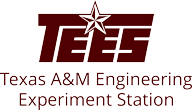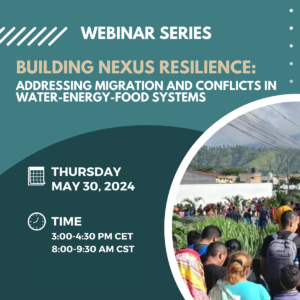

Background
Global crises, spanning conflicts, economic instability, and natural disasters, have propelled significant global migration, with more than 280 million international migrants in 2020, according to the UN International Organization for Migration. Push and pull factors for migration include water stress, extreme water events, energy poverty, and food insecurity. This surge in migration trends also challenges host nations, particularly in regions already facing resource scarcity challenges. Anticipated climate change and population growth will exacerbate these challenges, causing nonlinear impacts across water, energy, and food systems. The 2030 Agenda for Sustainable Development recognizes the intricate interdependencies among these resource systems, but their complex relationships with migration (forced, economic, rural-urban, internal, external) remain insufficiently addressed. Understanding the connections between migration and key environmental resources (e.g., water, energy, and food) and how resource scarcity influences migration needs further study.
Existing nexus models often fail to capture the nuanced interplay with conflicts and migration. Nexus communities from across the globe search for better tools to understand these trends and interconnections and guide anticipatory action toward improving the resilience of communities facing these pressures. Moreover, there is a need to understand the impact of the various underlying conditions and vulnerabilities on amplifying disaster risks related to water, energy, and food systems that lead to migration. Also, connecting the vulnerability and resilience of resource systems (primarily water, energy, and food) with the nexus still needs to unravel solutions for long-term sustainable development. The webinar series aims to fill this gap.
Objectives
This webinar series aims to catalyze cross-disciplinary, cross-institutional, and international dialogues toward understanding the knowledge gaps and opportunities in taking a holistic, systems approach to addressing these tightly interconnected challenges. With a focus on water, energy, and food systems, the webinar series will also consider other key environmental resources like climate, land, and ecosystems.
Outcomes
The webinar series is envisioned to facilitate the development of a common framework and road map for integrating migration in nexus assessment tools. This would contribute to exploring and developing anticipatory tools and strategies incorporating migration dynamics into nexus assessments, aiming to guide policymakers, researchers, and practitioners toward evidence-based, sustainable, and resilient solutions.
Organizing Committee
- Bassel Daher, Texas A&M University, SustainFood Network, IWRA
- Floor Brouwer, Institute for Integrated Management of Material Fluxes and Resources, United Nations University (UNU-FLORES)
- Chrysi Laspidou, Univeristy of Thessaly, NEXUSNET
Webinar Series Partners
- Texas A&M University and the Texas A&M Energy Institute
- United Nations University – Institute for Integrated Management of Material Fluxes and of Resources (UNU-FLORES)
- International Organization For Migration (IOM)
- SustainFood Network
- NEXUSNET
- Partnership for Research and Innovation in the Mediterranean Area (PRIMA)
- International Water Resources Association (IWRA)
Webinar Format
Panel presentations (3-4 panelists) + Q&A (with online audience engagement and interactive segments)
Frequency
Quarterly. The first webinar introduces the topic, the second focuses on tools and models, and the third focuses on governance.
Webinar 1
May 30, 2024
- Building Nexus Resilience Webinar 1 Presentation PDF
- Building Nexus Resilience Webinar 1 Communications Brief
Webinar Program
Introduction
- Bassel Daher, Texas A&M University
Panel and Moderated Discussion
- Christina Daszkiewicz, International Organization For Migration (IOM)
- Nidhi Nagabhatla, UNU-CRIS
- Bassel Daher, Texas A&M University
Dialogue Reflections
- Ali Rhouma, PRIMA
Next Steps
- Floor Brouwer, UNU-FLORES


